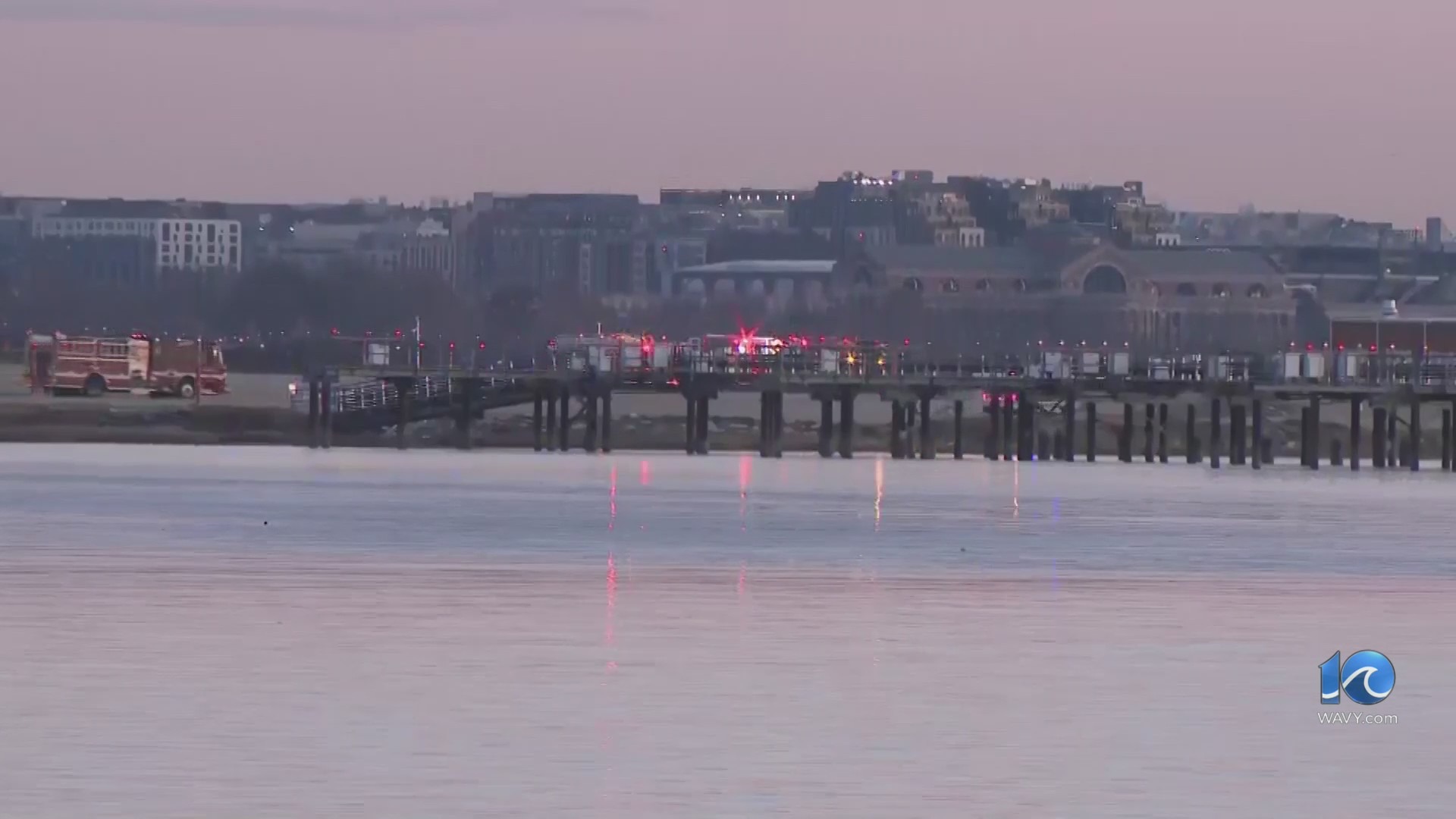WILLIAMSBURG, Va. (WAVY) – For the second time in five years, the College of William & Mary is under scrutiny by the Department of Education.
In 2014, the department opened a Title IX investigation and looked into 80 cases of sexual offense complaints on campus.
Investigators concluded in 2018 that the school was not always timely in its intervention, did not always offer every supportive measure available, and that staff may have unnecessarily asked students to retell or recount traumatic sexual assaults. William & Mary signed a resolution agreement in April of 2018 to address the compliance issues.
Two administrators who spoke to 10 On Your Side said the school is constantly revising and refining its sexual assault policies and procedures in order to better protect students.
Yet, the college is at the center of another federal investigation, this one again focused on its handling of sexual assault.
The central complaint comes from a woman we’ll call “Christine,” since she’s the victim of sexual assault and asked not to be identified.
“When I kind of woke up the next morning […] I didn’t know exactly where I was,” Christine said. “Then I realized who I was with and sort of slowly started to piece together all of these individual factors, like I’m naked and I’m sore.”
As Christine outlines in the Title IX complaint and in an interview with 10 On Your Side, a friend and fellow student sexually assaulted her in a dorm room in September of 2015, at the beginning of her junior year.
“Over the next several months, things were, I would say, grossly mishandled by William & Mary,” she said.
That’s what prompted Christine to pursue the federal investigation, even years after the case concluded.
A few days after the assault, Christine spoke on the phone with her brother, who helped her realize the gravity of what had happened. He urged her to go to the hospital.
“I had these bruises and burst blood vessels all over my hip and thigh from that for a couple of days after,” she said.
That was all recorded during the hospital exam, and Christine decided to move forward with reporting the assault to the Title IX office and William & Mary police.
She waited to hear what the next steps would be.
“I remember that time, and it felt like free fall for like a month, waiting for something,” she said.
From mid-September to mid-October, Christine got no response from the university, her first indication that the process might not go as she had hoped. Her list of grievances grew longer and longer as the weeks went by.
Next, she said, William & Mary discouraged her from getting a lawyer and provided her with an ineffective advisor to help guide her through the process.
“I met with her one time right at the very beginning and asked what I could expect from the process,” Christine said. “She couldn’t answer and pulled up the policy website, which I think was the moment I realized I was going to have to teach myself.”
Christine followed up with the police officers investigating her case, but that process died quickly after she said officers advised her that, because of a lack of evidence, the Commonwealth’s Attorney wouldn’t pick up her case.
She says she later found out from a Title IX investigator that officers assigned to her case never opened up the results of her hospital exam after the assault.
Christine saw drafts of the report before it was finalized, and tried, with little success, to correct errors. She was also dismayed that investigators had primarily interviewed witnesses supplied by the student she accused.
Finally, as the case drew to a close, Dean Marjorie Thomas missed the deadline to give Christine the decision in her case. When she did get the determination letter, it was the final insult in an already demeaning process.
Thomas wrote in the letter that although Christine was incapacitated at the time of the sexual contact, witnesses who saw her beforehand said she was speaking clearly, walking without difficulty and had enough motor coordination to play a drinking game.
The student accused of assaulting Christine couldn’t have known she was blackout drunk, and therefore, couldn’t be found responsible of wrongdoing, Thomas concluded.
“So to me, I hear ‘You were raped, but he’s not a rapist,’” Christine said.
The student named in Christine’s case was found responsible in two other cases, including one similar sexual assault, according to the federal complaint. He was suspended and later expelled for venturing onto campus during his suspension.
For Christine, that wasn’t enough. She found herself no longer pursuing personal justice, but instead wholesale change in William & Mary’s reporting and investigating process.
“I was hopeless for a little while, but I think kind of recalibrated and fell down on the side of absolutely enraged,” she said.
Even though Christine graduated in 2017, she decided to move forward with a Title IX complaint with the Department of Education, knowing the process could take years.
“I felt like all the months after and the reporting process were so backwards and confusing and absolutely in defiance of all logic that I felt like I could tell my story a million times and it wouldn’t matter,” she said. “It’s validating to tell it again and have someone say, ‘Yep that’s messed up.’ Because it is.”
William & Mary cannot legally respond to questions about specific sexual assault cases, but Dean of Students Marjorie Thomas and Title IX Coordinator Pamela Mason spoke extensively to 10 On Your Side about the college’s policies and procedures in resolving cases.
Thomas and Mason said they had not heard of instances of campus police discouraging students from pursuing legal action or of staff encouraging victims from seeking legal counsel, as Christine alleged in her complaint.
Without referring to Christine’s case, they explain how a Title IX review team might conclude a case like hers:
“If the evidence isn’t there to hold someone responsible, we can’t, we don’t take action,” Mason said.
“A survivor is saying to us, ‘I believe I have been harmed’ or ‘I know I have been harmed’ and we don’t have any evidence of that,” Thomas said. “When evidence exists, it gives us more to work with, but it doesn’t necessarily mean that a harm didn’t occur to an individual.”
While Thomas and Mason say their first priority is supporting survivors, they are responsible for protecting the rights of all William & Mary students – even those accused of serious violations.
“Someone that is blackout [drunk] cannot make a rational decision,” Mason said. “The questions that we get around cases often have to do with whether someone knew or should have known if someone was in that state.”
That logic, applied to Christine’s case and coupled with the Title IX board’s decision, presents a legal problem for the university, according to Colby Bruno, senior legal counsel for the Victim Rights Law Center.
“William and Mary’s decision really misses the mark, because what they say is that it’s clear the person was incapacitated and at that point that’s their decision regarding incapacitation,” Bruno said.
“The analysis should stop right there. The outcome should be, ‘this means that the person was incapacitated and therefore consent could never have been achieved.’”
But Bruno also says this about the process of determining sexual assault cases:
“Too drunk to consent is admittedly a very hard thing to prove, because people look different ways, people act different ways. There’s isn’t an industry standard for how someone looks behaves when they are too drunk.”
The Department of Education’s findings will likely take years, but in the meantime, Thomas and Mason say they welcome suggestions from students about how to better refine their process.
“We’re continuing to improve and we welcome any specific examples from students as to why they don’t feel that the process is supporting them,” Mason said.
“We’ve had the opportunity over the years to really take to heart students’ responses and been able to have immediate impact in terms of how we engage around this issue on our campus,” Thomas said.
But to Christine, those are empty promises that went unfulfilled by the recommendations in the 2014 investigation. It will take years for the Department of Education to investigate her complaint, but her hope is that it leads to concrete change.
“A big part of the problem in my case is that they didn’t even follow their own written policy when making the determination,” she said. “That’s probably the procedural change I’d be most interested in seeing.”
Christine’s Title IX complaint contains the full account of her assault and the problems she encountered after, as well as other survivors’ experiences.
You can read it in full here:
Watch more of Christine’s interview with 10 On Your Side:
William & Mary administrators explain the difficulties of deciding sexual assault cases:
Sexual assault survivors seeking confidential support can call the National Sexual Assault Telephone Hotline at any time: 800-656-4673.








